What successful mothers tell their daughters
Our women leaders know a lot about winning, but how do they pass it down to their own children?
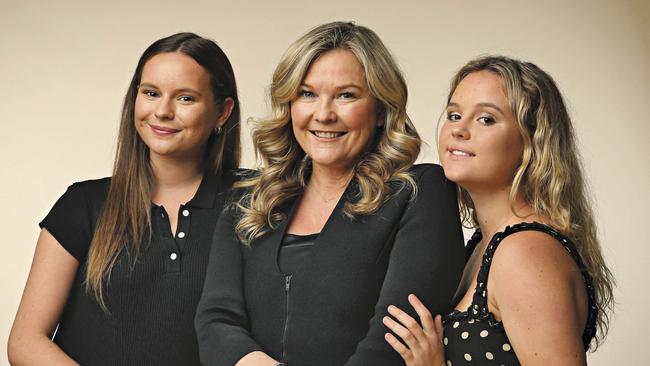
They are some of Australia’s most successful women. And they’re raising daughters. Surely, they will know how to raise women to be successful, kind and resilient; women who won’t wilt at social media or end up on #MeToo but will lead others into a better world. We thought we’d ask.
Swapping parenting advice is a staple of modern child rearing. Every time your child comes home late from a party, falls in with a tough gang, loses interest in work, goes strangely silent or simply cannot see the wet towel on the floor, you want to yell for help.
You buy the books, call mum, go online to mummy blogs or turn to another parent — hopefully, a successful parent — and ask, how do you do this, what’s the mantra, is there something I’m missing?
Success in careers doesn’t mean success in child raising — it was once considered a handicap — but it’s not a bad place to explore what values, skills and characteristics today’s leading women think are needed for the women of the future.
Our mothers range across industries — finance, health, culture, construction and technology — and hold positions that usually preclude the term “mother”. Their daughters are aged from 14 years to 32 years and, from what their mothers tell us, they sound as if they’re on track. And, while we didn’t expect too much Tiger Mum advice, or even a Sheryl Sandberg lesson on leaning, we were worried that they’d proffer the same homilies. They didn’t.
READ MORE: The business of being Tanya Plibersek | Women are changing Australian sport | It’s a grind, but bad bananas make good
If there was one refrain, it was that their daughters should take risks. As Alexis George says: “You need to take those roles that make you feel sick in the stomach.” And, yes, she still feels sick in the stomach at times. And if there was a common foundation, it was the presence of strong women, usually their mothers.
More broadly, our leaders want to raise women with opinions, women who respect others, work hard and think independently. As board director and former politician Nicola Roxon puts it: “There is a risk we bring up girls to be too compliant and that might be useful when they’re small but it’s not good for the adult you want them to be.”
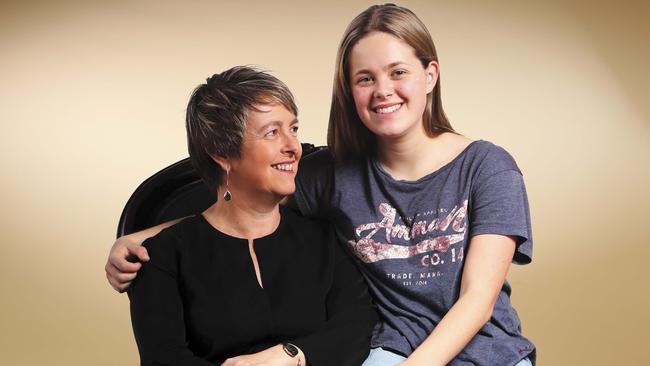
It’s interesting what they don’t say. There’s no grooming for ambition, hyperbolic Silicon Valley slogans or warnings about what not to do. Their focus is on the character traits that could carry a girl into a life in boardrooms, a poetry slam or a laboratory.
As an elite group of women, they are wary of the effects of privilege, social media and over-protection, especially the temptations of helicopter parenting. But their biggest worry is that the messages won’t get through.
“It can feel like they’re not listening,” says Holly Kramer.
“I tell them a lot but I’m not sure they listen,” says Pip Marlow.
“She remembers that I always told her to take her make-up off before going to bed,” says George.
‘There is a risk we bring up girls to be too compliant ... it’s not good for the adult you want them to be’
Sometimes, though, mothers can hear their words echoing back to them from their daughters. It might be in different words or contexts and it might not be the most important piece of advice they’ve ever given, but it’s stuck.
Says Jillian Broadbent: “I like the ways they’ve absorbed values without having to say them but, if they’re genuine values, that’s the only way to convey them effectively.”
George is deputy CEO at ANZ and mother to 24-year-old Ashlee and 21-year-old Nathan, and she says her working-class background in a small country town taught her “you should work hard at whatever you’re doing”.
“My second piece of advice is don’t start believing your own publicity,” says George. “I say this a lot but I do think that as you get more senior you can be told all the good things about yourself, and hearing that changes people, often not for the better. It’s about keeping it real. Ashlee did well at school and at uni and got the job she wanted, so it’s good to remember that sometimes with success you can forget what people in the rest of society deal with.
“Be honest and respectful, and by that I mean you should be honest but you have to understand other people and not everyone can take direct honesty that easily. My parents
taught me that you treat people equally, whether they are a CEO or digging up roads.”
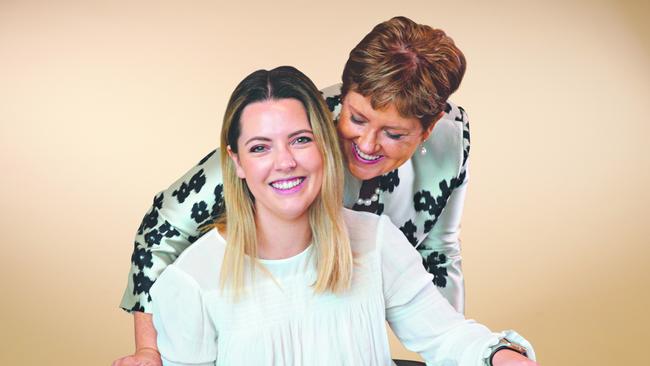
George admits she gives her daughter different advice to her son — and her daughter has noticed. That gender-specific piece of advice is: “Ask. If you don’t ask, you won’t get it, so take a risk and ask. I say that more to her than my son because unfortunately we live in a world where it’s necessary to say that to women who, for whatever reason, often don’t put themselves forward.”
Since her appointment a year ago, George says she’s been reflecting on what took her to that position and whether it’s possible to engender ambition in children. “I don’t think I’m that ambitious and, as you talk to women about it, I’ve concluded it’s more about taking risks,” she says. “You need to take those roles that make you feel sick in the stomach and if that job you take on isn’t making you feel sick in the stomach, then it’s not the job you should be in.”
Marlow is CEO of Salesforce Australia and New Zealand and mother to 18-year-old Sophie and 16-year-old Lucy. While she tells them a lot, she says: “You have to start early and it’s more about what you do, not what you say.
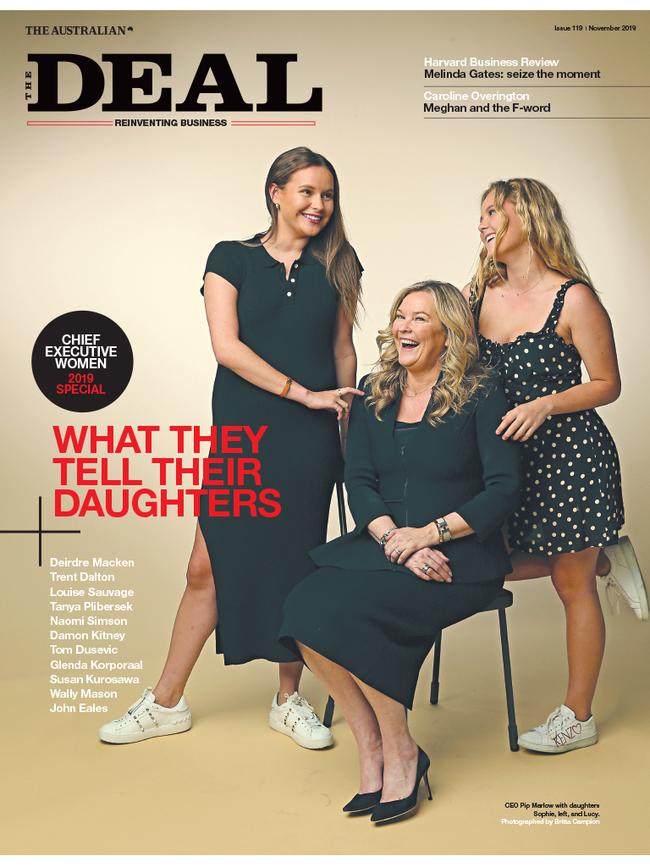
“I talk to them a lot about belief and mindset. When they say they can’t do this or I’m not good enough, I say, whether you believe you can or believe you can’t, you’re right. So, have that belief you can do it even if it’s hard or takes longer than you thought. I talk to them about that because things do get hard and things I did in my career were really hard and I needed that belief in myself to do them.
“The other one is that as a female there isn’t any job you can’t do or any course you can’t take. Don’t close off your mind to those because other people or systems make it harder for females or you don’t see a female doing it. I want them to be proud to be a female and not think that it’s something that will close doors on them.”
Marlow says she is more demanding of her daughters as they grow and more direct with advice. “For example, when we’re talking about friends, I’ll say the people you put around you, the people you accept as friends, speak volumes for you,” she says. “This has been a big thing for them as teenagers.
“I share stories with them about early days in my career when I wasn’t treated so well as a female in a business with a lot of men who thought they could talk to you in a certain way or walk by and put their hands in places. I share that with them to make sure they will say ‘no’ faster, say ‘no’ straight away. I don’t want to scare them with those stories but I do want to prepare them.”
Marlow talks about equity and equality, gender and pay equity; about social justice and giving back and making their own decisions and owning those decisions. “My children have made bad choices at times but I say to them, you’re a good person who made a bad decision,” she says. “You will make bad decisions; I make bad decisions but that doesn’t mean you’re not a good person.”
Except for Carol Dweck’s book Mindset, Marlow says her parenting is a self-taught and grandmother-taught skill. “It isn’t like getting your driving licence where you learn the rules,” she says. “Parenting is fit for purpose because no two children are the same.”
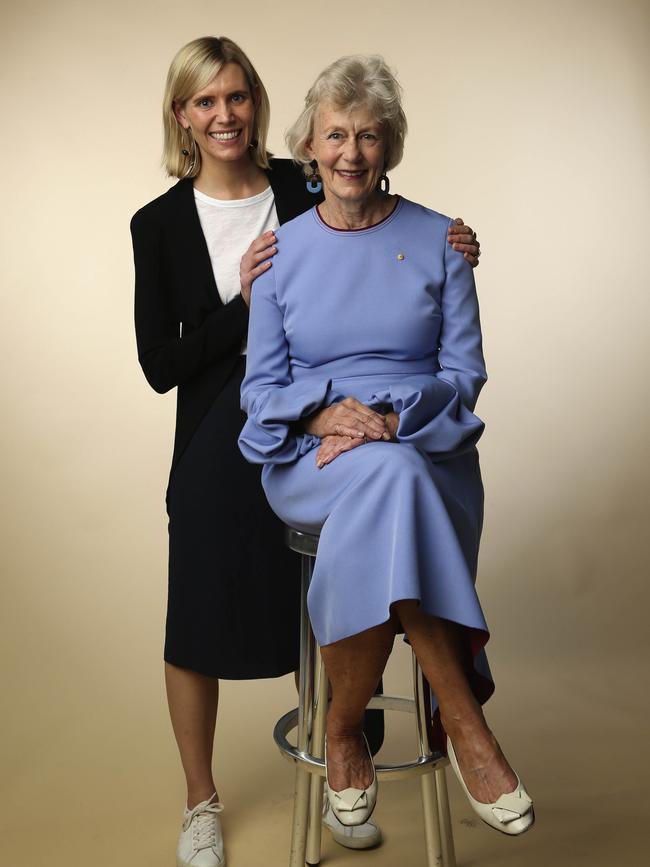
Broadbent is a director, chancellor of Wollongong University and pioneer of women in finance. She has a 32-year-old daughter, Laura, and 34-year-old son, Tim, and has never been tempted to give them different guidance. “I believe in gender neutrality so much I don’t think I’ve ever thought of saying, well this is for you because of your gender but not for you,” she says. In fact, she doesn’t recall having a set of child-rearing principles as she raised her two children in the middle of an intense career in finance.
“My process of delivering advice was delivering it by example,” she says. “For instance, look for the positive in people and the positive in what you’re doing. Enjoy your work, have a social conscience and always enjoy a challenge. I wasn’t really aware of trying to provide modelling but I’ve been fortunate in enjoying work and enjoying the companionship of work.
“When they were teenagers, there were rules but it was more of an expectation that, for instance, you were going to continue your education. Sometimes, expectations can be more impactful than rules. They know what you’re going to be disappointed by because it’s very clear what I believed in.
“I’m not sure I had a philosophy. It was more a desire to raise decent, educated people who can make a contribution and do something you believe in.”
With adult children, Broadbent has been able to ask her daughter what she remembers of the advice she did give. “I do remember telling her to communicate clearly but she doesn’t remember that. She remembered a social conscience was important. I don’t remember telling her that but it obviously became clear to her.” Indeed, Broadbent is clearly delighted at how her children have absorbed the principles behind the modelling. “I like the ways they’ve absorbed values without having to say them but, if they’re genuine values, that’s the only way to convey them effectively.”
‘What you think, what you say and what you read that is more important than how you look’
Roxon is chair of HESTA super fund, director of Dexus and Lifestyle Communities, mother to 14-year-old Rebecca and the daughter of a mother “who’d always say, don’t be afraid to have a go at things, don’t think you have to be perfect”. Those comments built an inner confidence in Roxon and her sisters and formed the basis for the sort of advice she passes on.
“The thing I spend the most time talking to her about is to have opinions: that her voice matters, whether it’s the smallest thing or a big picture thing,” she says. “There is a risk we bring up girls to be too compliant and while that might be useful when they’re small, it’s not good for the adult you want them to be.”
Roxon concedes that raising an opinionated girl means “an occasional irritation and, in a political household, that’s bound to get tested. I also say it’s what you think, what you say and what you read that is more important than how you look and, with that, comes the ability to listen to other opinions too. I’m not in the camp that says everything has changed because of social media but I think the focus on what people look like is much more prevalent. The counterbalance is to encourage the idea that what you think or do is more important than how you look.
“I remember when Rebecca was quite young, a friend came over and said to her: ‘Do you have a favourite book at the moment?’ I realised that my friend was being quite deliberate about asking that question and was grateful for that.”
Generally, Roxon says the future is arriving so fast, it’s hard to give specific advice, but “the approach you take to life is what’s important”. It is, she says, more about enabling a child than curating a life course for her.
“The notion that we can cocoon children from the future is a nonsense,” she says. “You can’t. Learning how to make decisions, how to make choices, is part of growing up. The idea that you can make all the decisions for your child and expect that they’ll naturally make the right decisions later in life just doesn’t make sense. All you do is take away their agency.”
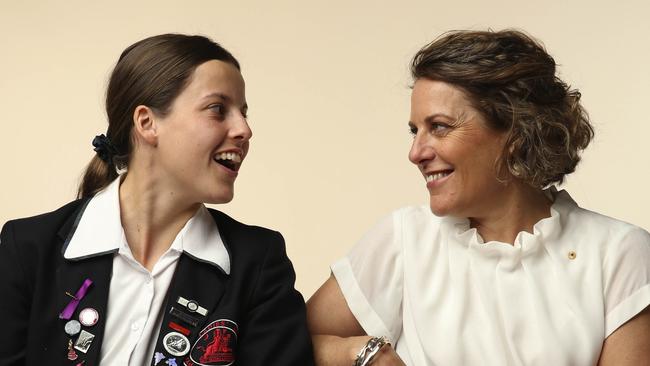
Romilly Madew, CEO of Infrastructure Australia, is mother to 17-year-old Arielle, 20-year-old David and 15-year-old Nathaniel. She also has a number of nieces, she mentors young women and has been surrounded by strong women — her mother and sisters — all her life.
“I sometimes wonder if I’m harder on Arielle than I am on my two sons, and sometimes Arielle thinks so too,” she says. “But I look back to when I was growing up and I had a strong, left-wing, feminist mother who’d tell my sisters and I to try everything, and I try to impress that on Arielle.
“The advice I give her is the world is her oyster and she should be open to trying anything. And she does — she plays soccer at the state level, she’s a lifeguard and a rower and she wants to study paramedicine. Not too long ago, all those things would have been difficult for a young woman to do.”
Madew carved out a successful career in the male-dominated construction industry so it’s no surprise her daughter is choosing traditional male activities. But Madew is not interested in raising a mini-me. “If there is one thing I want her to remember, it’s be true to yourself,” she says. “Be herself and be true to herself. And she doesn’t shy away from being a female and doesn’t shy away from being a dag. You normally find her in leggings or exercise gear and I think that shows she’s comfortable in her own skin.”
Holly Kramer is director of Woolworths and Australia Post and mother of 16-year-old Jesse, who has just started the HSC year, so balance is front of mind. “It’s important to encourage balance in her life,” she says. “But also I’ve been trying to encourage her to do courses she likes and not worry about the results so much, because success in life will not be dependent on HSC results.
“It’s people skills and how you treat people that matter the most. She appears to be a natural leader and I emphasise how important that is and that it’s important how she relates to other kids in the class and treats them with respect. We’re sticklers for manners in our family.”
Kramer talks of the tension between wanting to be influential in your child’s life and wanting her to think for herself. “Her father and I have different perspectives on things, so she’s encouraged to use her own mind to decide what her beliefs are, rather than take on mine or her father’s. So, I say, think independently, don’t just follow the crowd or whatever is popping up on social media.
“I like to encourage risk-taking. I think that came from my mum who would always say, what’s the worst that could happen? A lot of my better decisions have happened when I took a risk, when I’ve been willing to try something new or try a different path.”
Kramer says there’s no guide to good parenting, you just figure it out as you go. But she’s not a believer in rules in any case. “My approach has been to talk about the consequences of actions — the consequences of, say, taking drugs or drinking too much — rather than focus on telling her what she can or can’t do. I don’t have too many rules.
“Initially, it can feel like they’re not listening or they pretend they’re not taking it in but I think it gets embedded in their minds. Sometimes I’ll hear her talking with friends and it’s obvious she’s taken it in. I’m a big believer in repetition.”

To join the conversation, please log in. Don't have an account? Register
Join the conversation, you are commenting as Logout